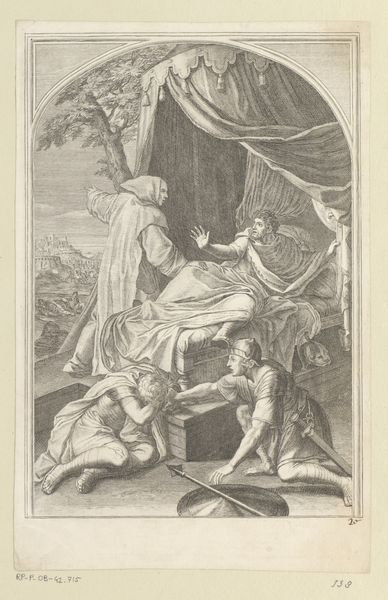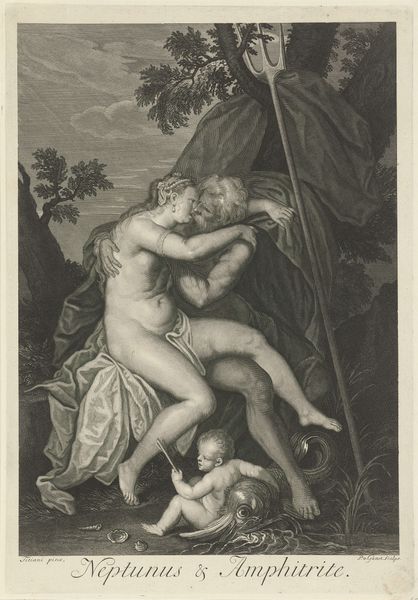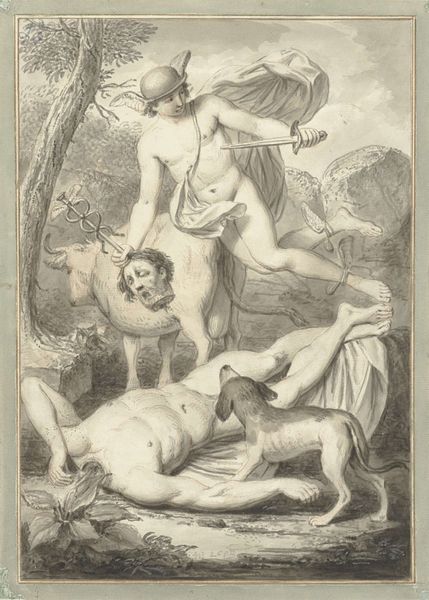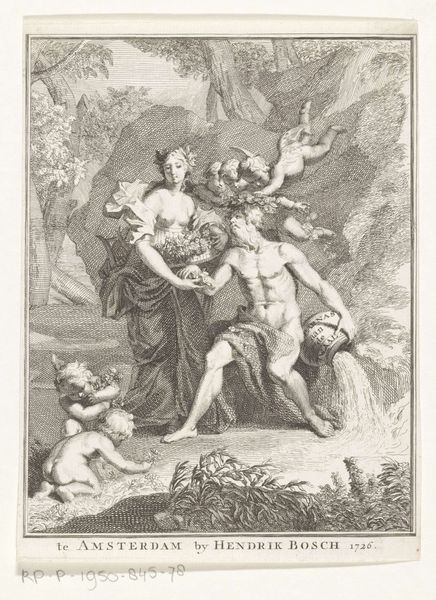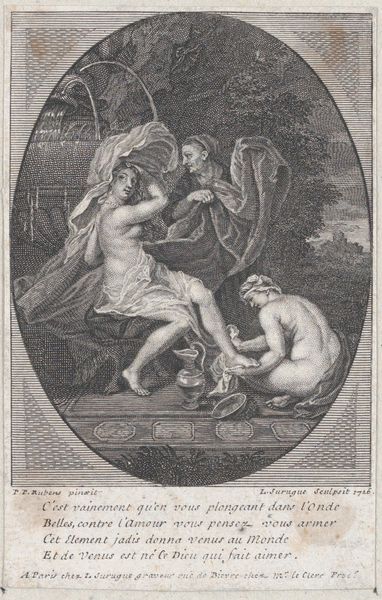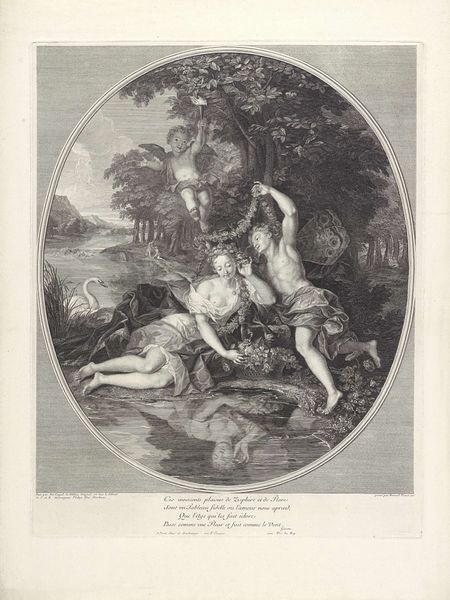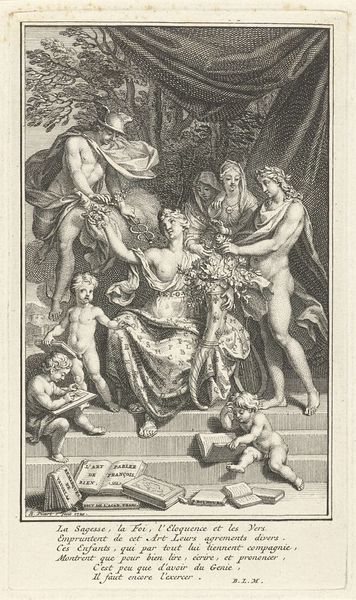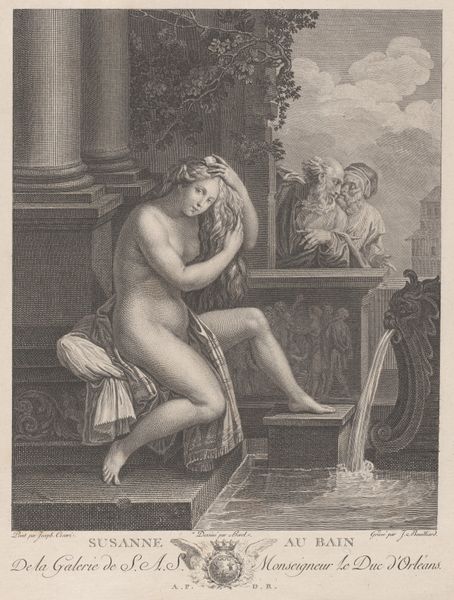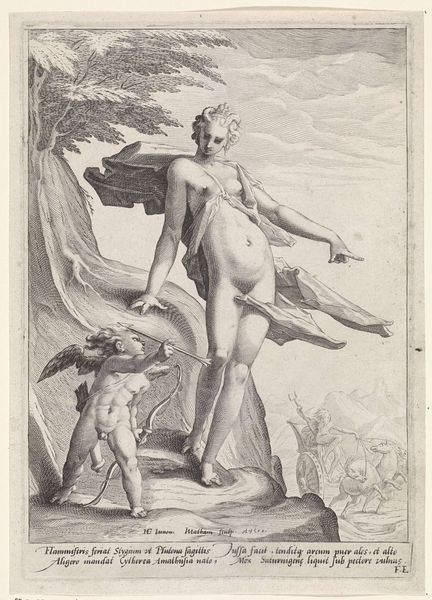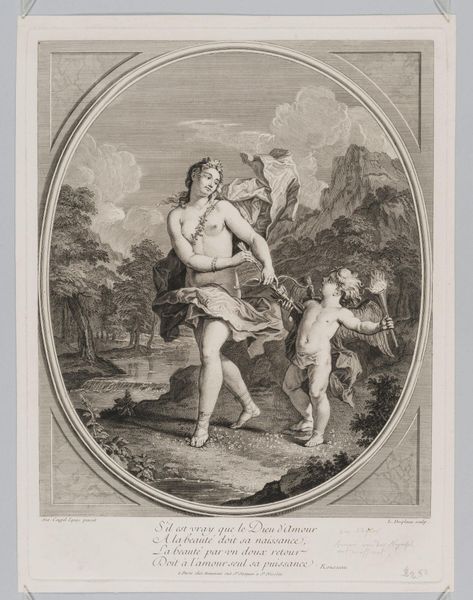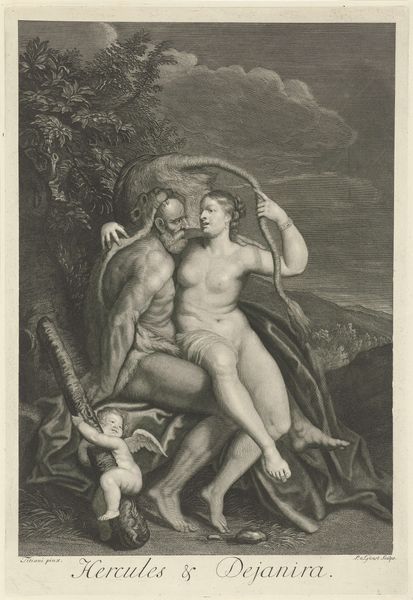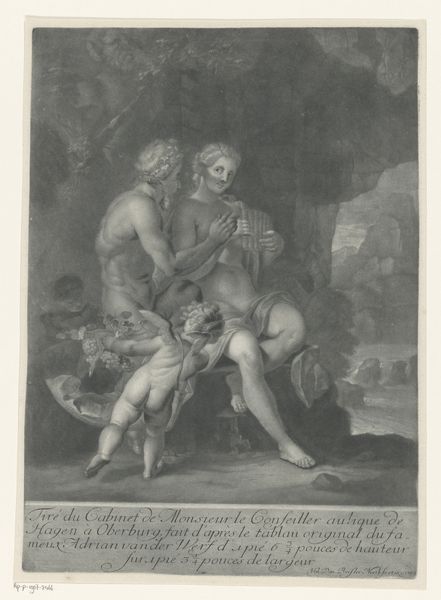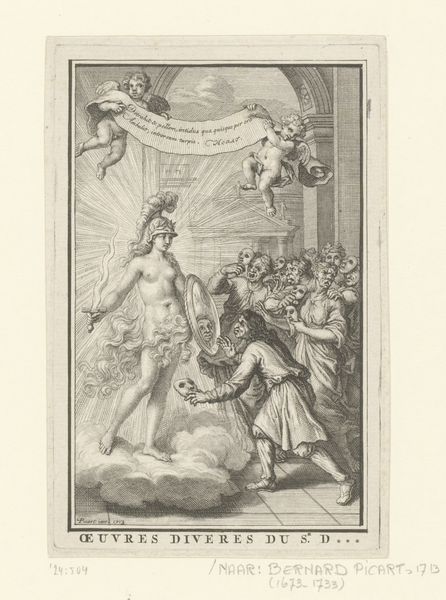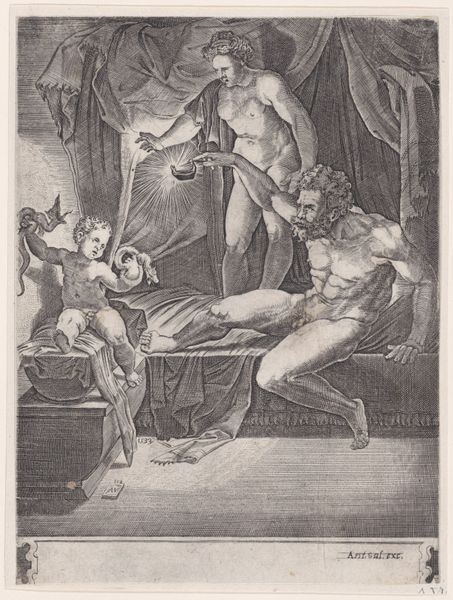
engraving
#
baroque
#
figuration
#
history-painting
#
engraving
#
erotic-art
Dimensions: height 423 mm, width 293 mm
Copyright: Rijks Museum: Open Domain
Here we see an engraving by Pieter van Gunst, made in the late 17th or early 18th century, depicting Mars and Venus. These mythological figures represent the embodiment of war and love respectively. The symbolism of Mars's helmet and Venus's mirror speaks volumes. The helmet, a relic of war, lies discarded, suggesting a moment of respite or surrender to the power of love. Venus, gazing into her mirror, embodies vanity and beauty, but also self-awareness and reflection. This scene harkens back to antiquity, echoing in the frescoes of Pompeii. Consider Botticelli's "Venus and Mars," where the god of war is similarly disarmed, subdued by love. This motif of love conquering war resurfaces throughout art history, evolving in meaning yet retaining its primal appeal. Perhaps, this image's enduring power lies in its portrayal of a primal struggle between opposing forces, engaging our collective memory on a deep, subconscious level. This cyclical progression of symbols reminds us that history is not linear but a continuous return and reinterpretation of fundamental human experiences.
Comments
No comments
Be the first to comment and join the conversation on the ultimate creative platform.
